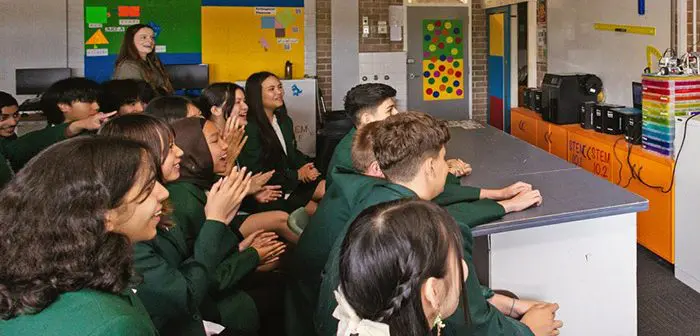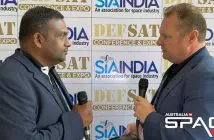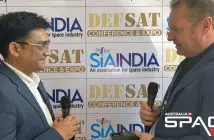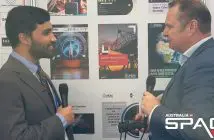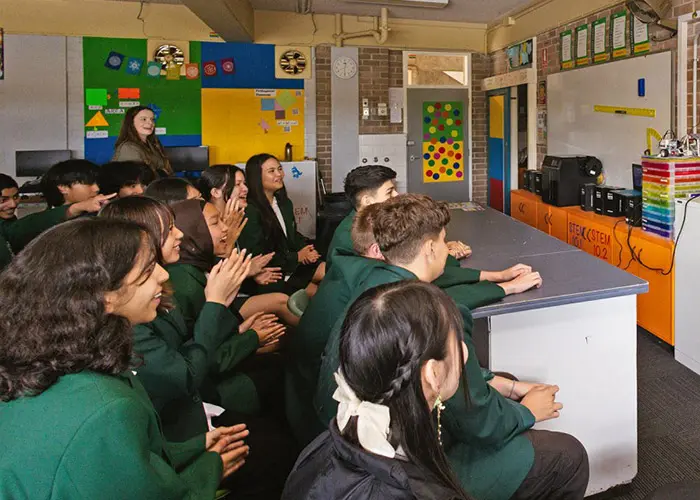
Sydney secondary school students have sent life-giving algae to the International Space Station to help create a greener future on Earth.
On November 5, students from Seven Hills High School joined students at Casula High School cheering and clapping as the inaugural Powerhouse-1 space mission lifted off from the Kennedy Space Centre in Florida, carrying two shoebox-sized containers of an ancient species of microalgae.
The student-designed experiment left Earth on the SpaceX-31 Cargo Dragon spacecraft destined for a 30-day mission to space, marking the culmination of the three-year Powerhouse: Future Space program. This is the first initiative of the Lang Walker Family Academy at Powerhouse Parramatta, made possible through a generous donation from the Walker Family Foundation.
The project, named Algae in Microgravity, was created to prove the students’ hypothesis that algae grows faster in orbit than on Earth. If their assumptions are correct, it could present possibilities for space-grown algae to be used in food, medicines and biofuels during interplanetary travel – and to improve environmental conditions on Earth and Mars.
Launched in 2022, the three-year project was developed by Powerhouse in partnership with Magnitude.io and the NSW Department of Education, with support from the University of Technology Sydney, Fizzics Education and Space Tango.
The program was designed to align with NSW curriculum, specifically the elective iSTEM subject for Year 9 and 10 students, with participating schools including Arthur Phillip High School, East Hills Girls High School, Hurlstone Agricultural High School, Bankstown Girls High School, Seven Hills High School and Casula High School.
Over the past three years, Future Space students have had access to experiences beyond the classroom, learning from local and international scientists, researchers and industry space leaders, such as Australia’s first female astronaut Katherine Bennell-Pegg, Gamilaraay astrophysicist Karlie Noon and NASA scientist Dr Adrian Brown.
Students were invited into University of Technology’s Deep Green Biotech Lab where they learnt about the practical applications of algae and heard from academic researchers in the field.
One of the key events within the program was the 2023 Powerhouse Design For Space Challenge, which saw students design and pitch their own microgravity experiments to space industry professionals. Some student submissions included an investigation into the impacts of microgravity on microbial resistance, the development of insulin, the development of neurons and the growth of mould.
Casula High School’s Algae in Microgravity experiment was selected as the project to be sent on the inaugural mission to the ISS. Over the past year students from all seven schools have collaborated on this experiment, conducting ground trials using ExoLabs to determine the ideal growing conditions for algae before comparing and analysing results.
“Students were always blown away by the fact that the work we were doing was adding to actual data being collected and used worldwide,” said Casula High Teacher Lexie Rouen. “All of this is above and beyond what we can normally achieve inside a classroom.”
“Powerhouse: Future Space has offered students the opportunity to learn about the breadth of research currently being conducted on the International Space Station, formulate their own questions and develop their own experiment, before coming together to collaborate on this very real, student-led space mission,” said Lang Walker Family Academy’s Sophie Poisel. “It has been wonderful to see students develop skills in STEM, critical thinking, collaboration and leadership and reflect on their learning over the course of the program.”

